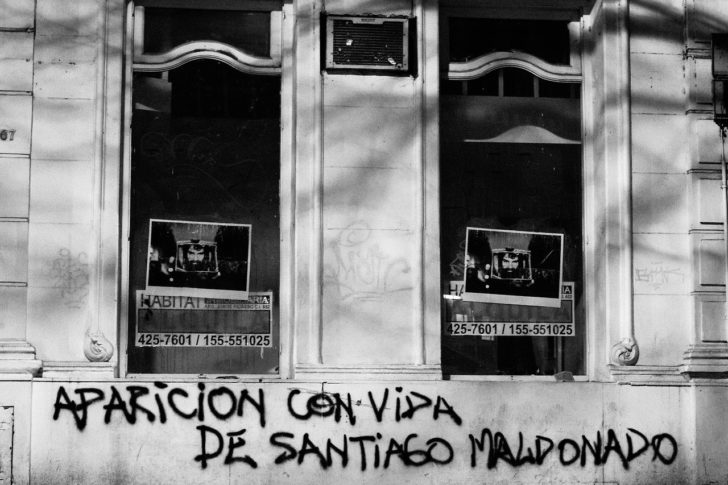Today marked 50 days since Santiago Maldonado was last seen, attempting to escape from an operation by the Argentine Gendarmerie in the territory of the Mapuche indigenous community known as “Pu Lof Cushamen.”
From day one, his family and various human rights organizations asked that officials search for him and investigate whether the Gendarmerie had anything to do with his disappearance. There was resistance to thoroughly investigating the state’s possible responsibility. The measures that should be taken urgently, early on, to confirm or rule out the responsibility of state agents in a human rights violation were delayed. In addition, several weeks went by before significant search measures were undertaken. This type of case entails specific difficulties but they should not be impossible to work around. The fact that we still don’t know where Santiago is or what happened, 50 days later, is a failure of the state in its obligation to discover the truth.
On top of the delays that hindered an immediate investigation corresponding to the seriousness of the case, for much of the time since August 1 the national government’s strategy was centered on floating insubstantial hypotheses about what might have happened, denying the Gendarmerie’s participation, mistreating Santiago’s family members, and seeking to discredit the Mapuche community.
For weeks, the Argentine Security Ministry hid information that was relevant to understanding what had occurred during the Gendarmerie’s operation. After all the hypotheses that it had put forth showed themselves to be flawed, the Ministry began to contribute information (in a disorganized and invariably incomplete fashion) that it had obtained early on. In this way, more than a month later, it became clear that the Gendarmerie’s operation was violent and riddled with irregularities – just as community members had denounced. For weeks, the government hid this, and it has not provided any explanations to this day.
This strategy of speculating with information is not innocuous: defending a security force before having even investigated, and then hiding information that the Ministry had available while also misinforming society, sent a strong message of political support to that security force. Misinforming and backing an illegal and violent operation is the exact opposite of putting oneself at the service of an investigation of this type, even more so if the objective is to rule out any possible responsibility of state agents in a disappearance.
On August 7, the UN Committee on Enforced Disappearances granted an urgent action requested by CELS in which it called on the Argentine state to take urgent measures to search for and locate Santiago Maldonado. It also asked the state to guarantee his relatives’ full participation in the investigation, giving them direct access to all the information available. These demands were not complied with. For this reason we made a second presentation to the UN Committee, which can be read in Spanish here, in which we detail the state response to these events.

